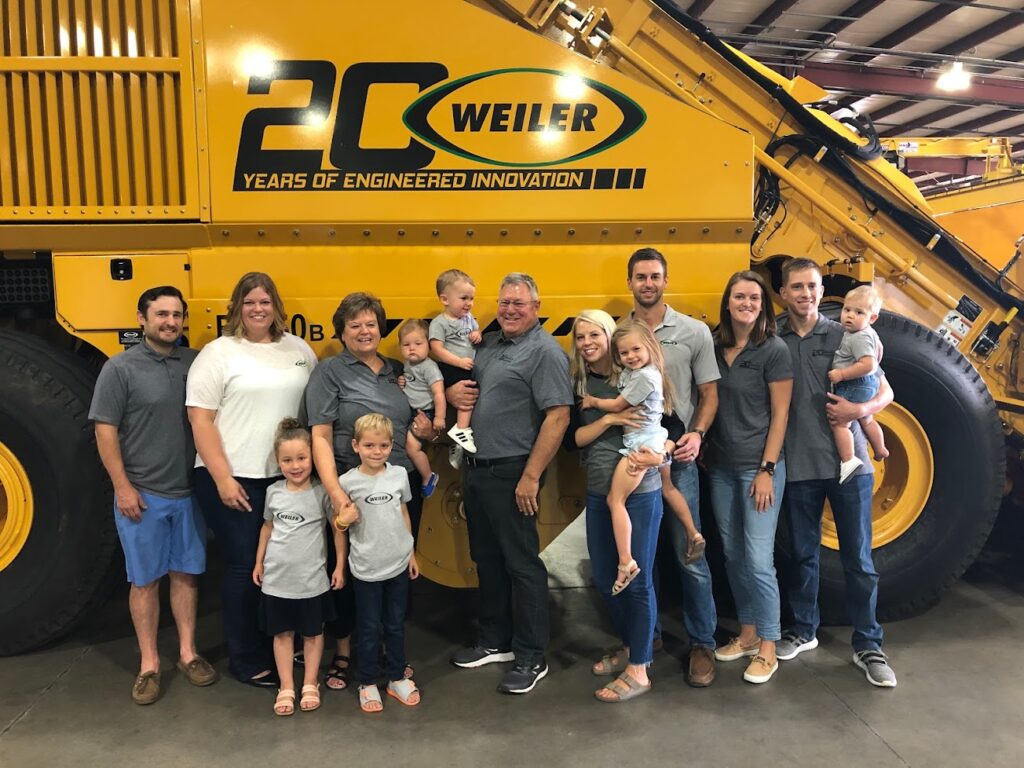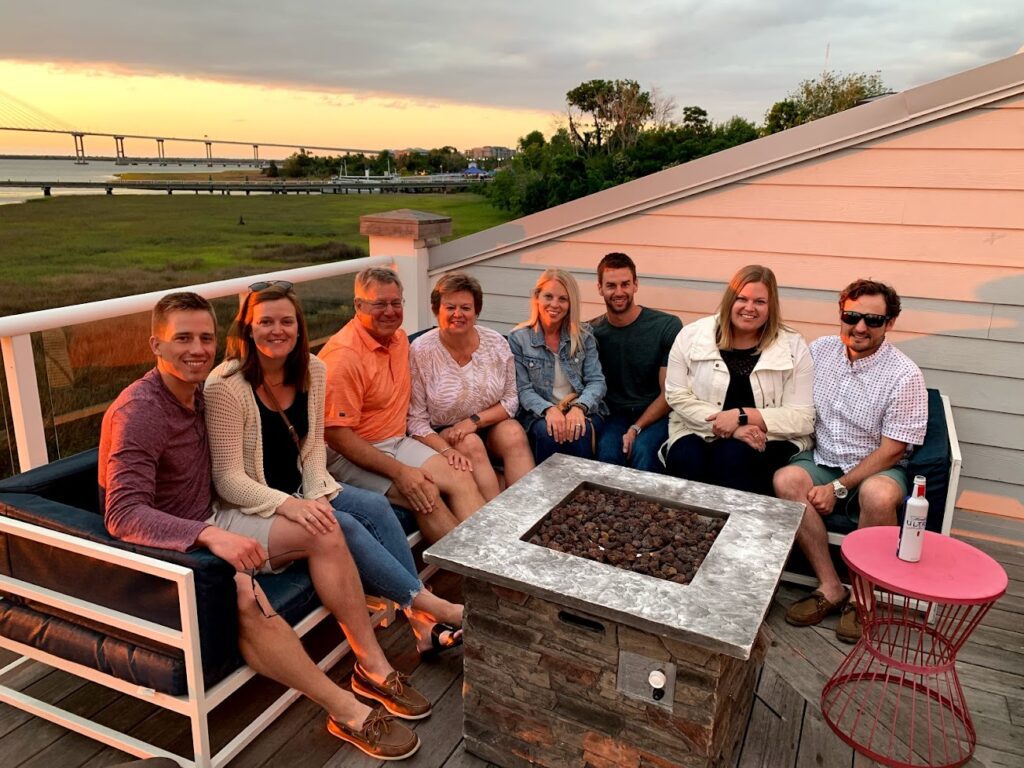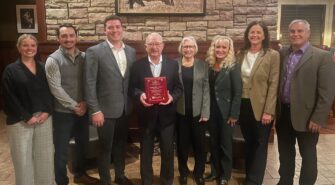Preview a ‘taste’ of family business at one-of-a-kind dinner
Recent News
It’s an often overlooked role in a family business, despite the fact that spouses can play a significant role in the business’ success.
At Iowa-based Weiler Products, that became clear in recent years as three second-generation owners’ spouses stepped up to help create a spousal employment policy.

“We waited until everyone was married to have those conversations, which was helpful because we all had a long-term vision in mind,” said Megan Weiler Green, who serves as corporate counsel and engineering manager for the heavy equipment manufacturer her parents founded in 2000.
Green and her husband, Jeremy, were gifted shares of the business when they were married. They both were working in the insurance industry in Illinois when they decided to move to Iowa in 2017.
“Growing up, I worked here summers like most family businesses, but I hadn’t intended to come back to the business mostly because I didn’t think I would have anything to offer in manufacturing,” she said. “But as the company started growing more, there was a need for in-house counsel, and I was a lawyer, and coming back made sense from a family perspective, so back we came.”
Jeremy’s relationship with the business up until that point was as a shareholder only, and while they talked about having spouses potentially join the business, when the spouses met on it the outcome changed.
“They came back with a spousal employment policy that says they would not work for the family business,” Green said. “They didn’t think it was a good idea, and we were supportive, even though all three are professionals who would have skills appropriate for our business. But they worked together on it and were completely in the driver’s seat.”
Now, the spouses are involved as shareholders and receive an annual report, along with answers to questions or additional information at any time.

“What we felt was most important was that the spouses were driving this,” Green said. “We found that very beneficial, so I’d recommend to any others considering something similar that the spouses take ownership of their role.”
An upcoming webinar hosted by the Prairie Family Business Association will further explore the topic of “The People We Don’t Talk About Enough: Spouses of Family Business Owners” at 10 a.m. July 27.
“In many family businesses, spouses carry huge influence, from harmonizing relationships to serving as sounding boards,” said Stephanie Larscheid, executive director of the Prairie Family Business Association.
“Their involvement and how their role is addressed often increases or decreases success for the business, but this is rarely talked about, so we’re excited to connect our families with experts to help guide them in this area.”
Along with hearing directly from Green about her family’s experience, the webinar will be led by Sara Stern, certified EOS implementer and author of a book on spouses in family businesses that will be released the same day as the webinar.
We sat down with Stern for some early insight into the topic.

What inspired you to tackle this topic in a book?
I saw a lot of family business owners struggling because spouses were at times encouraging them to do things that were bad for the business. But my heart also went out to the spouses because I could tell they were trying to do the right thing. So this is designed for spouses of family business owners to help them influence the family business to be healthy, inspired and successful.
When you marry into a family business, it is a different sort of dynamic. What kind of responses to that do you see from spouses?
The stereotypical response is that spouses feel as though the family member is married to the business more than them. But when I talk to spouses, that is not necessarily their perspective. Often, they’re very supportive and want the business to succeed and their spouse’s family to succeed and their own nuclear family to succeed. They just don’t have a map to balance all the things that are involved.
So what do you think: Should a spouse work in the business or not?
I’ve seen massive success both ways and failure both ways. But I have seen it work very well when the business is run professionally in such a way that everyone in the business is there because they should be there — when the right person is in the right seat. If that’s what the spouse is, it can be super successful and kind of fun for a lot of people. But if not, it’s very frustrating.
What kind of other best practices have you found involving spouses?
I recommend all ownership groups have a policy about who can own the business and who can work in the business and that it cover spouses. At the webinar, I’ll also share some guidelines on which meetings spouses should be in and which decisions spouses should be part of.
What other themes will you explore in the webinar?
We’ll look at a three-circle model of family business, which explains how the family runs differently than the business and both those run differently than ownership. I’ll pull those apart to understand why priorities are different around the kitchen table than they are around the boardroom table.
To learn more and register for the free webinar, click here.



